**********************************************************************
5. Meeting my hero, Tomie dePoala was great fun! He came all the way out West to meet ME! Ha!… Okay… so I never met him in person until this day, but he did write me a couple of times after I wrote to him. Yes, if you write an author or illustrator, they MAY just write you back!
2 Comments on Hindsight, last added: 9/7/2011
Yesterday, quite a few people were freaked out by this news story, which dominated the Guardian's homepage. In essence, it’s been revealed that an iPhone not only keeps track of your location but keeps that data stored on the phone and syncs it to your computer when you plug your phone in. Many people were outraged, leading to lots of comments on Twitter about how much of an invasion of privacy this constituted. It was also debated this morning on The Today Programme, arguably the country's leading broadcast news outlet.
What surpris ed me was how much people were suprised by this, until I remembered that I've already read The Filter Bubble by Eli Pariser, published by us on June 23rd, and the subject of which is exactly this: the data companies gather and store about you through the internet and what they use it for. For major digital corporations such as Google, Facebook and increasingly Apple, information is their bread and butter; by gathering lots of information on a person they are able to make their advertising space more attractive to advertisers and therefore charge more money for it. Eli Pariser says that former Google CEO Jeff Schmidt likes to point out that "if you recorded all human communication from the dawn of time to 2003, it’d take up about five billion gigabytes of storage space. Now, we’re creating that much data every two days". Where you are, where you've visited is all part of this and while the data currently doesn't seem to be being sent back to Apple, it perhaps might be useful for future location-based advertising services. It all ultimately adds up to a lot of information on a given person, much of which is incredibly useful and valuable. It's a fairly simple equation - gather info, work out what's valuable, sell it to advertisers - but it's done to such enormously complex degrees by companies that it boggles the mind of even the people who work there. ed me was how much people were suprised by this, until I remembered that I've already read The Filter Bubble by Eli Pariser, published by us on June 23rd, and the subject of which is exactly this: the data companies gather and store about you through the internet and what they use it for. For major digital corporations such as Google, Facebook and increasingly Apple, information is their bread and butter; by gathering lots of information on a person they are able to make their advertising space more attractive to advertisers and therefore charge more money for it. Eli Pariser says that former Google CEO Jeff Schmidt likes to point out that "if you recorded all human communication from the dawn of time to 2003, it’d take up about five billion gigabytes of storage space. Now, we’re creating that much data every two days". Where you are, where you've visited is all part of this and while the data currently doesn't seem to be being sent back to Apple, it perhaps might be useful for future location-based advertising services. It all ultimately adds up to a lot of information on a given person, much of which is incredibly useful and valuable. It's a fairly simple equation - gather info, work out what's valuable, sell it to advertisers - but it's done to such enormously complex degrees by companies that it boggles the mind of even the people who work there.
This information can lead to some remarkable things, not least personalised search, whereby what appears when you type something into a search engine is tailored to you (simplifying enormously there, of course). The search engine works out what you're interested in and filters out what you're not. Many of us probably see this as a service, an improvement on the way we used to have to trawl through the results to find what was relevant: I simply typed 'iphone location guardian' to find that story just now. When, for example, was the last time you even clicked to the second page of a Google search result? But on the other hand it can lead to what Eli Pariser calls a 'filter bubble', whereby we are no longer challenged or inspired by things outside of our realms of experience or comfort zone. This means politically

By: Venetia Butterfield,
on 2/11/2011
Blog: The Penguin Blog
( Login to Add to MyJacketFlap)
JacketFlap tags:
It's romantic if I say it is, Books, community, Reading, Health, Fairy tales, Games, The Future, Politics, romance, Stories, End of the World, The Past, The End of the World, Add a tag

Flowers? For me? Oh, you shouldn't - oh. You didn't. They're for your mother? Fine. Whatevs.
But you did get me a book? Now we're talking.
Despite difficult book relationships at times, a deciding factor in agreeing to domestic bliss with my better half was the discovery of a key shared book. I say I gave the book to him, he says he gave it to me. Potato potahto. (I gave it to him.)
So which book have you found shared love in? Or, for the misanthropes out there, which was the straw that broke the relationship's back?
Once more, I'll post something nice out to whichever answer I like best. Although that will probably only apply to UK people. But come on! Everyone can just join in anyway! Yeay! Hang on - you didn't even get me flowers. Why am I feeling bad about this?
Sam the Copywriter
.............................................................................
Remember that by posting a comment you are agreeing to the website Terms of Use. If you consider any content on this site to be inappropriate, please report it to Penguin Books by emailing [email protected]
..............................................................................

By: Annie Beth Ericsson,
on 2/8/2011
Blog: Walking In Public
( Login to Add to MyJacketFlap)
JacketFlap tags:
picture books, the future, publishing, disney, ebooks, social media, greenwillow, apps, fourth story media, ereaders, the amanda project, ipad, freight train, ruckus media, Add a tag

(Oh hey, check out this new Oliver Jeffers’ Heart And The Bottle app!)
Everyone – and I mean, EVERYONE (that’s right, NPR) – is talking about e-books and new media. While adult e-readers are already a major part of consumer culture, childrens’ apps and e-books are still in their infancy (pun intended). People seem to have a special concern and defensiveness reserved for the future of kids’ books – after all, who wants their kids’ future reduced to bedtime stories curled up with an IPad?
Most industry professionals and consumers alike agree that traditional children’s books aren’t going anywhere. For one, buying a two-year-old a Color Nook is a lot less cost-efficient than a $4.99 board book, if all the toddler’s going to do is chew on the corners. For another, people like the visceral experience of buying a hardcover book and turning its pages, reading aloud themselves instead of pressing a button.
Instead, we’re heading towards more and more options for kids books, and while we adults will have to nervously or excitedly adapt, kids will grow up expecting content on myriad forms of media.
So I commend SCBWI’s Illustrators’ Intensive for making the focus of their annual NYC event “Beyond Books: Picture Books and the New Media“. Hey, if we don’t know about it, let’s invite some panelists to tell us about it!
As excited as I was about hearing the “Online Presence: A Panel Review of Websites, Blogs and Social Media”, it wasn’t my focus of the day. Mostly, I was there to hear about the latest digital development shrouded in mystery: apps. It’s something we all know is the future (SO much cooler than e-books), but we don’t REALLY know how they’re created. First off, we sat in on the “Development of Apps from Classics” discussion, with panelists Virginia Duncan of Greenwillow Books (HarperCollins) and Colin Hosten of Hyperion/Disney Digital Books.

Ms. Duncan explained the making of Greenwillow’s first app, Freight Train by Donald Crews. With bold shapes and different views from its companion book, Inside Freight Train, this was a perfect way to get an introduction to all that can be done with an app. Take a simple story, then add movement, games, songs… the sky’s the limit! Check out storyboards and other making-of tidbits from Freight Train here.
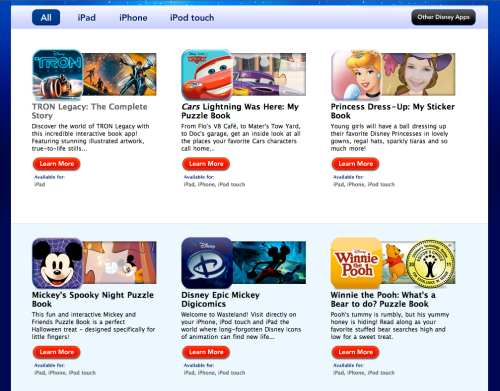
Now, say what you want about Disney’s creepy corpo

By: Venetia Butterfield,
on 11/9/2010
Blog: The Penguin Blog
( Login to Add to MyJacketFlap)
JacketFlap tags:
design, Web/Tech, The Future, Puffin, Apple, ebooks, audio, Apps, e-Readers, iPad, iBooks, book Apps, eAudio, puffin digital prize, Add a tag
Today is an incredibly exciting day. Today is the launch of the Puffin Digital Prize and a brave new world for Puffin picture books. I'm so excited I can hardly breathe. But, I'm getting ahead of myself. Let me take a deep breath and I’ll explain things properly. I'll start at the very beginning . . .
As the Editorial Director of Puffin Picture Books, I am the lucky girl who has the privilege of working on beautifully illustrated, full colour books for young readers. Think Raymond Briggs and The Snowman, add Helen Oxenbury and Julia Donaldson and you get the picture. As I said, I am VERY lucky. But I wasn't feeling quite so lucky a little while ago, when the word digital was a real thorn in my side. How did picture books fit into this amazing digital world everyone was talking about? Well, quite simply, they didn't. Being full colour with integrated text, the technology simply didn't exist to bring them to life on a digital device. I would enviously look at my fiction colleagues with their e-readers where a whole world of stories lived and breathed in one nifty little machine. Sigh. All I could do was be patient. One day, I said to my beautiful, fully illustrated books, one day, your time will come. 
And come it did with a bang - the iPad. Woo-hoo! Like every other person at Penguin, I used all sorts of ruses, good and bad, to get my hands on one. And when I did it felt like Christmas. I've always been a
book-sniffer (I use that term affectionately, someone who loves a book for being a book as well as a fabulous story) but my conversion was complete in that one moment. Just look at what this thing can do! We have glorious technicolour in fanta

In one of the darkest years of the 1930s depression, Allen Lane founded Penguin with the -- then groundbreaking -- notion to sell quality writing as cheaply as a pack of cigarettes and to sell them everywhere. Studying our own history gives us pause for thought as we tip headfirst into recession: bleak economic times are sometimes the crucible of inspiration and creativity. I think of the black box theatres so beloved of Peter Brook and endless student productions, in which limited resources became the spur to imagination. And I compare that to a particularly bloated production I once saw where just one effect must have cost thousands of pounds, scores of unionised man-hours and added precisely nothing of meaning or value to the piece. When I say we're ready and inspired to take the challenge of an economic downturn, I don't just mean cutting a few long lunches, but having a vision and being fleet of foot enough to respond to changing market conditions. Historically, the publishing industry thrives on such challenges. I think I've said in a previous blog that for an "old" industry, we're pretty responsive and innovative. We have to be. Our customers are still there and a book remains fantastic value for money. Apparently at such times we skew more toward escapist fare, rather like the cinema goers in the 30s flocked to gangster films, musicals and screwball comedies. When the Canary Wharf Waterstones opened the day after the collapse of Lehman Bros, the first two books to be sold were books on spirituality. Another huge growth area is teenage fiction thanks to the Harry Potter effect on our growing kids, with help from teenage vampires in Twilight and teenage fathers in Nick Hornby's Slam. The common wisdom is that this mortgage-free demographic market's disposible income remains relatively unaffected, although books compete for it with games and music. People will also still buy books for their kids. The success of Ascent of Money, Black Swan and The Great Crash 1929 shows that those books helping us understand what's happening are also flying out the door. So what are we worried about? In short, it might not be our readers, but our retailers. The once mighty high street has been fighting competition from online and supermarkets for a few years, but when every day another high street name goes into administration, we have to assess the risk. When a company goes into administration, the independent administrators sell off as many assets as possible, paying off debts in order of priority. If we have lots of stock sitting in a customer's warehouse or on their shelves, we first have to prove to the administrators that we supplied it, rather than a third party wholesaler, and then once that value is assessed, we may only be awarded pence in the pound. So a retailer going under is bad news for its suppliers. There is a theory that in these times it's best to be very big so you can take a hit like the one I've described, or to be very small, so you can turn on a dime in response to tricky market conditions. Each of our retailers needs a strategy to suit these times as much as we do: whether it's negotiating down rents and utilities, increasing margin on every book sold, increasing marketing income, consolidating roles, departments or even outlets, making cost savings in the supply chain, and so on. That can make for even tougher negotiations between publishers and retailers, but it's not the only game in town. How do we get back to creativity and innovation? How do we as publishers and retailers inspire our customers to buy books? Peter Brook felt passionately that a theatre of more limited means helped to bring theatre-makers and their audiences into a closer rapport. The stage is bare. Enter an actor and a book. Fiona Buckland
Sales Manager .............................................................................
Remember that by posting a comment you are agreeing to the website Terms of Use. If you consider any content on this site to be inappropriate, please report it to Penguin Books by emailing [email protected]
..............................................................................

By: tara,
on 12/16/2008
Blog: Tara Lazar
( Login to Add to MyJacketFlap)
JacketFlap tags:
Children, Blogging, The Future, Writing, Creative Writing, Parenting, Writing for Children, Grandparents, Grandchildren, Add a tag
How many of you know your grandparents? I mean, really know their stories? Their favorite childhood friend, how they met their spouse, the hardships they endured in their marriages, the passions they pursued, the loves they left behind, the joys that comprised their lives?
I don’t know my grandmother beyond the surface. She collects owl and cardinal knick-knacks. Her eyesight is fading. She enjoys making hooked rugs and solving word puzzles. She sleeps beneath a golden crucifix.
I know she married a man 10 years her senior at just 17 years old and had two children before she turned 20. I know she was a young girl during the Depression. I know her brother lived with her almost his entire life. I know she watched her husband die of Lou Gehrig’s disease. But I don’t know any of the stories associated with these things. I know one sentence each, and I’ve told you all I know.
I’m eager for more about her life. I want to understand what she went through to ensure I could have the happy, secure life I have today. She is a part of me, but it is all mystery.
As I fell asleep last night, I thought about this blog and how it may remain online for many years into the future. Ten, twenty, maybe even 100 years or more. Then there’s my Shutterfly albums. And YouTube. A permanent record of my life in words, photographs and movies exists out there. Future archeologists need no shovels.
So if you are my grandchild reading this after I have passed, I don’t know you, but I love you. I would like to tell you all my stories. Please sit in a comfortable chair and read about how I wanted to be an author. I hope I inspire you.
Tell me, was I successful? Do you have my books at your bedside?
Please don’t forget to comment. Who knows, maybe in 100 years they’ll figure out a way for me to read it. I’m sure the spammers will lead the way with that technology.
     
When I joined Penguin more than a decade ago it is fair to say that we were not at the cutting edge of the technological revolution. Senior editors used dictaphones and the office was redolent of the smell of Tipp-Ex. There were a few computers around, but a manager needed to authorise internet access which was doled out sparingly. Amazon had just launched and had not yet made it to this side of the Atlantic and there were many who were convinced that CD-ROMs were going to be the next big thing.
But the next big thing had not even been launched yet and it is a measure of the pace of change that the word Google has now become commonplace as a noun, a verb and as a virtual embodiment of the tranformation in how we search, discover and engage with information, technology and other people. Google are this year celebrating their 10th birthday and as part of the festivities have released their index of pages searched in 2001.
At Penguin, there's nothing we hate more than missing a party, so here's a comparison of some Penguin and book related searches from 2001 and from 6 October 2008. It's slightly humbling to see how the amount of information available on any given subject (technically, the number of pages indexed that contain the search term) has skyrocked in just seven years
2001 2008
"Penguin Books" 83,000 5,450,000
Nick Hornby 11,300 1,540,000
paperback 2,100,000 220,000,000
ebook 251,000 82,400,000
"cookery book" 5,970 354,000
Catcher in the Rye 35,900 2,270,000
"Charlie and Lola" 3 383,000
You can find Google's 2001 index here - if you find any more interesting book comparisons, post them in the comments below.
Jeremy Ettinghausen, Digital Publisher
...........................................................................
Remember that by posting a comment you are agreeing to the website Terms of Use. If you consider any content on this site to be inappropriate, please report it to Penguin Books by emailing [email protected]
..............................................................................
I wish I had more insightful things to say. I wish that my blog was an amazing dissertation on education theory and policy. It isn't, and truth be told I don't have anything insightful to say. I have a lot of questions, fears, and haphazard possibly unsupported theories about my views on education. I know I haven't had the experience of most people, but so you might question, why blog, why do it at all. Maybe it is my liberal arts education, but a part of me feels that the questions are just as important as the answers. What questions do new teachers ask themselves in the few weeks before they are gifted 20 or so smiling faces. Here are some of my biggest questions...feel free to supply answers if you have any, or simply smile.
How will I assess my students? It's a word I hear over and over "assess", "track", it all seems like numbers on a page sometimes. Will I DRA my students, use running records, will my students get excited for spelling tests, how will I test my students?
What does that first week look like? I know I know, I set up rules, I rehearse procedures, but somewhere in there I have to find out my students starting point. Somewhere in there I have to teach a real lesson, or two, or seven.
Will other teachers hate me because I'm new?
When will my body adjust to waking up at 5 am?
Will I ever stop having questions? I guess I won't. My inquisitive nature never fails, but I wonder if I'll ever get to the point where my blog will steer away from questions and fear and towards those insightful thoughts. How many years? ten? twenty? For now, I'll focus on the important task at hand, becoming a strong teacher and leading my students to success.
Yesterday I was asking an American book blogger if, following a week spent hanging out with UK publishers, she could see any major differences between publishers in the US and those over here. "Yep," she said, "depression." In the US apparently, "morale is low" and there is a feeling that the publishing of fiction, in particular, is ailing. If the internet hasn't won already, it is believed, major damage has been inflicted on non-web based forms of entertainment.
Previous posts here, here, here and here for example, have considered that while the internet might indeed be transforming the cultural landscape, it's not yet time to roll over and die. Yes, the game is changing, but we still want to be players, still believe that there is a market for quality fiction, and still think that if you tell an interesting enough story, whatever the medium, it will be read.
Over the last 5 weeks nearly 150,000 people have read the digital fictions we've presented at We Tell Stories, and with the release of this week's installment this incursion into web-based fiction is coming to an end. We've learnt lots of things along the way. We've discovered that our authors are interested in new challenges and  have enjoyed writing outside their comfort zones. That game designers are as interested in strong narrative as
book editors. That there is an interest and an audience for new ways of telling stories. That we shouldn't be frightened of the internet, but instead should critically examine the possibilities it presents to create new forms of narrative, new audiences and new opportunities for our authors and their work. have enjoyed writing outside their comfort zones. That game designers are as interested in strong narrative as
book editors. That there is an interest and an audience for new ways of telling stories. That we shouldn't be frightened of the internet, but instead should critically examine the possibilities it presents to create new forms of narrative, new audiences and new opportunities for our authors and their work.
We Tell Stories has been a great project to work on, but the challenge now is to learn from and take forward some of the ideas that have been raised and use this platform to make further, bolder online incursions. Being a publisher is not just about selling and distributing books, it's about selling and distributing stories and ideas, and these can take many forms.
As Mohsin Hamid writes, 'There are always at least two ways to tell a story.' The game is afoot...
Jeremy Ettinghausen, Digital Publisher
..............................................................................
Remember that by posting a comment you are agreeing to the website Terms of Use. If you consider any content on this site to be inappropriate, please report it to Penguin Books by emailing [email protected]
..............................................................................

By: Venetia Butterfield,
on 2/26/2008
Blog: The Penguin Blog
( Login to Add to MyJacketFlap)
JacketFlap tags:
games, Web/Tech, The Future, Writing, stories, ebooks, gutenberg, gutenberg, mcluhan, mcluhan, ebooks, Add a tag
There has been plenty of chatter in the last few weeks about ebooks and ebook readers, technologies which might or might not dramatically transform how we buy and read books. But there has also been the odd item here and there speculating on the future of reading, examining how internet usage might affect how people actually look for and absorb information.
There is a school of thought that says that Gutenberg's invention of the printing press - leading to the demise of the illuminated manuscript and the transfer of knowledge by linear type - actually affected the way that people absorbed ideas and information and that Western Rationalism might not have taken hold without the orderly presentation of text. So it is not implausible to imagine that as more and more knowledge and information is transfered via the internet, with popup windows, embedded video, infographic boxes and all the other eye-catching frippery competing for attention, we might witness significant changes in the way we read, and perhaps in the way we actually think.
This is probably already happening - in The Observer John Naughton quotes a report which described information seeking behaviour as 'horizontal, bouncing, checking and viewing in nature.' Teenagers, I was told today, start reading at the centre of a website moving outwards from the middle when something captures their digitally native eyes.
Of course not all books are linear - our sister company, Dorling Kindersley for example produces the most wonderfully designed and illustrated guides and reference books, but for fiction, generally, linearity is the rule. Beginnings, middles and ends. Words following words.
All of which is a roundabout way of saying that in a few weeks Penguin will be embarking on an experiment in storytelling (yes, another one, I hear you sigh). We've teamed up with some interesting folk and challenged some of our top authors to write brand new stories that take full advantage of the functionalities that the internet has to offer - this will be great writing, but writing in a form that would not have been possible 200, 20 or even 2 years ago. If you want to be alerted when this project launches sign up here - all will be revealed in March.
Jeremy Ettinghausen, Digital Publisher
..............................................................................
Remember that by posting a comment you are agreeing to the website Terms of Use. If you consider any content on this site to be inappropriate, please report it to Penguin Books by emailing [email protected]
..............................................................................
Generally speaking, I'm a pretty big fan of Jean Hannah Edelstein. I often read her posts and feel a pang of recognition, albeit by replacing her hi-falutin' titles with the ones I actually read. But this time, the headline writers of the Guardian have gone too far. "Can the novella save literature?" may be both an interesting question and a tongue-in-cheek way of addressing the fact that London's public transport is crammed with crummy freepapers, but it smacks of the terror that seems to riddle the whole world of books like woodworm. Or bookworm.
JHE argues: "the vast majority of new writers - even the very good ones - trying to crack in to publishing with their first novel are inevitably told that times are hard for fiction right now ... the chance of publishers successfully launching a novel by an unknown writer on the reading public are indeed slim in an information culture where we struggle to get through 10 pages without losing focus to the buzz of media white noise. Several hundred pages can feel like too much of a commitment when there is so much information to consume ... And who could deny that the actual experience of reading a long book can feel a little arduous if it doesn't really make your heart sing?"
I think partaking in anything you find rubbish is a pretty poor way of judging that oeuvre. Going to see my sister's childhood orchestra would never have made a classical music fan of anyone, and seeing one Young Vic performance of Hamlet is not the way to judge that theatre is "over". Yes, we are pretty busy these days, and yes, there is a lot going on in terms of the information being fed to us - but how much more do we appreciate sinking into a good book? A thick, good book. Whether it's a Rowling, Clarke, Mitchell or James, a book that requires dedication and commitment is exactly what many people are desperate for at a time where restaurant meals last 45 minutes and you can cross the planet in a day or so.
JHE also suggests that novellas battle dumbing-down charges, because "without exacting quite the level of austerity presented by the task of writing a good short story, novellas challenge writers to use words like wartime rations: with care and thought and the extra level of creative gusto required to ensure that they stretch to make a miniature read that is just as satisfying as something more substantial." Why not encourage full-length novelists to work that way? Neither Lolita nor The Talented Mr Ripley are particularly brief, but neither has a word wasted - unlike some of the sprawling rambles novelists (as opposed to novella-ists) can be inclined towards. And if a reader didn't have to wade through 150 pages of foggy childhood recollection, who knows - 800-page tomes might fly by.
I think the bell for literature has been tolling for a few hundred years now, with no noticeable shift away from books over walking, talking, dancing, playing the piano/Wii, or any of the myriad other options. And since Penguin Towers keeps on ticking over, I think I'll hold off on tearing down my bookshelves for novella racks/computer brain sockets/iron gates to keep away the barbarian hordes. Although since one of them fell down recently, I may have to reinforce the 'tome' section.
Sam the Copywriter
..........................................................................
Remember that by posting a comment you are agreeing to the website Terms of Use. If you consider any content on this site to be inappropriate, please report it to Penguin Books by emailing [email protected]
...........................................................................
This morning I have been musing on this interesting phenomenon, the Death of the Reader. (Apologies to Barthes.)
It started with an innocent post on Advergirl, about how her latest book to read is underneath her PS3. And it reminded me of the NEA report scare from before Christmas about how Americans are reading less than they used to. NPR's Talk of the Nation carried the story.
But book sales data is showing it to be true.
There's a great article from this summer's Washington Post.com: Harry Potter and the death of Reading. A chilling excerpt:
We're experiencing the literary equivalent of a loss of biodiversity. Alane sent me a great futurist article about whether we would all stop reading altogether by 2050, in favor of voice. (I won't give away the conclusion here--but you may postpone the monograph bonfire at least until tomorrow...) And of course I approach all of this with a healthy skepticism. I have not yet read the NEA study. But I do wonder what model of reading they consider "official." Does it count all the little black squiggley things I roam around in, in my online world? Or is reading online not considered *real* reading? And maybe it shouldn't be. IS there such a thing as *real* (as opposed to psuedo, imaginary, forced or otherwise unreal) reading?

By: Venetia Butterfield,
on 12/20/2007
Blog: The Penguin Blog
( Login to Add to MyJacketFlap)
JacketFlap tags:
News, Books, Film, Television, The Future, Housekeeping, Christmas, Bond, James Bond, Add a tag
 Suddenly, another year has gone by. A final Harry Potter, the promise of more Bond, and a growing addiction to stollen - that's been my 2007 in a nutshell. The future, however, looks both golden and delicious: Bond is actually published, the shops stop selling stollen (for a while), and we give you a new Marian Keyes, the plague, a bit of musical poetry, some fairly monstrous and some very funny parenting, a gangland statistician, some number-crunching Lewis Caroll stuff, and a guide for nice guys. What more could you ask from 2008? Suddenly, another year has gone by. A final Harry Potter, the promise of more Bond, and a growing addiction to stollen - that's been my 2007 in a nutshell. The future, however, looks both golden and delicious: Bond is actually published, the shops stop selling stollen (for a while), and we give you a new Marian Keyes, the plague, a bit of musical poetry, some fairly monstrous and some very funny parenting, a gangland statistician, some number-crunching Lewis Caroll stuff, and a guide for nice guys. What more could you ask from 2008?
Wishing you all a very happy Christmas and a lovely New Year - I'm off to dance on the photocopier at the annual Penguin Towers bash.
Sam the Copywriter
..........................................................................
Remember that by posting a comment you are agreeing to the website Terms of Use. If you consider any content on this site to be inappropriate, please report it to Penguin Books by emailing [email protected]
...........................................................................
 Wonderful, wonderful, oh most wonderful... Cafe Penguin is no more, and we have finally returned home to the open arms of Penguin Towers, on the lovely, lovely Strand. Lots of pre-moving anxiety (constructive comments ranging from "People will pity how awful our desks are" to "There's no natural light! We'll become Morlocks!" have, of course, turned out to be utterly unfounded) became joy at returning to somewhere that actually had running water. No more shoes sticking to the pavement of Brick Lane on a Monday morning, no more lack of access to banks, post offices, key cutters, shoe menders, pharmacies, dry-cleaners and our Penguin canteen, no more cut cables, random fire alarms, extreme temperatures and the World's Most Awful Lifts... Instead, we are in the glittering new offices, hand-crafted by tiny literary robots to suit our every whim. We've only been here four hours (who doesn't enjoy a late start on a Monday morning?) and already our computers work, our phones dial out, and our files have somewhere to live. I feel a little bit like weeping for joy, so I might just ride up and down in our lifts for a little while to celebrate. Wonderful, wonderful, oh most wonderful... Cafe Penguin is no more, and we have finally returned home to the open arms of Penguin Towers, on the lovely, lovely Strand. Lots of pre-moving anxiety (constructive comments ranging from "People will pity how awful our desks are" to "There's no natural light! We'll become Morlocks!" have, of course, turned out to be utterly unfounded) became joy at returning to somewhere that actually had running water. No more shoes sticking to the pavement of Brick Lane on a Monday morning, no more lack of access to banks, post offices, key cutters, shoe menders, pharmacies, dry-cleaners and our Penguin canteen, no more cut cables, random fire alarms, extreme temperatures and the World's Most Awful Lifts... Instead, we are in the glittering new offices, hand-crafted by tiny literary robots to suit our every whim. We've only been here four hours (who doesn't enjoy a late start on a Monday morning?) and already our computers work, our phones dial out, and our files have somewhere to live. I feel a little bit like weeping for joy, so I might just ride up and down in our lifts for a little while to celebrate.
Sam the Copywriter
..........................................................................
Remember that by posting a comment you are agreeing to the website Terms of Use. If you consider any content on this site to be inappropriate, please report it to Penguin Books by emailing [email protected]
...........................................................................
View Next 10 Posts
|





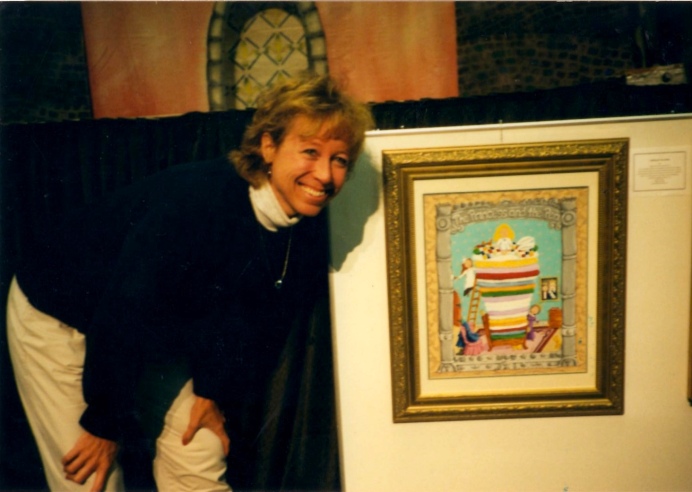
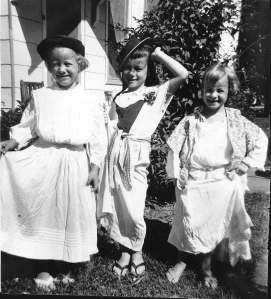
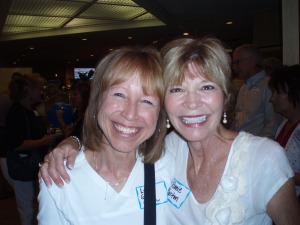
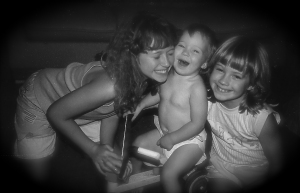
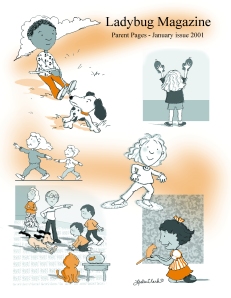











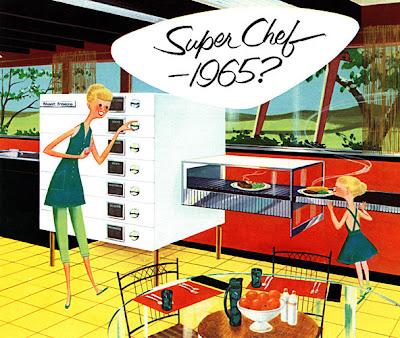


Love B's line so much! You definitely need to spend some time with that one for your writing. I love the ever-changing nature of science, how it's a place of constant wonder and learning... everything is flexible and filled with possibility. What a great way to phrase it for kids, as not being finished. I'm going to run that by my teenagers today. :)
That is too cute. It's hard to remember growing--we need outside witnesses and evidence, usually.
(I'm featuring Hugh McLeod's Ignore Everybody book as my writing book of the day tomorrow or Friday--it's fabulous.)